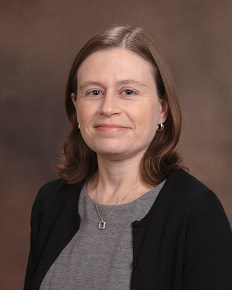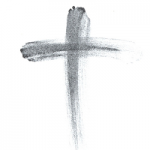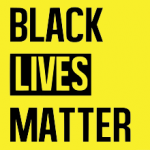By Laura Stephens-Reed

For a moment, my feet felt stuck to the floor. It wasn’t because of the sticky residue of concessions spills, though. My ticket had just been torn by a movie theater employee. She hardly gave me, my son, and my backpack a second look as she waved us toward the auditorium for our showing of Sing. It was a different story for the two middle-aged, African-American women behind us. The employee had them both open their purses for a thorough search.
Am I seeing racism? I thought. Should I say something? After a moment, I gathered my silent self and followed my galloping preschooler into our auditorium.
That was in January. I’m still haunted by my lack of action.
Maybe I didn’t witness prejudice at work. Maybe the women were movie theater regulars who were notorious for trying to sneak in outside food and drink. But I have learned that the very ability to rationalize what I witnessed as not being about race is indicative of my privilege as a white person.
The incident at the movie theater, some intense discussion in an online forum about the ways different kinds of oppression intersect, and the stripping away of some of my innocence (ignorance?) by the political happenings of the last six months brought me to the cusp of Lent ready to do some long overdue reflection. I could no longer deny that I have some deeply-buried biases.
I could no longer overlook the ways political, social, and economic structures are set up to benefit me and mine at the expense of others. I could no longer leave the burden of advocacy solely to people most affected by bad policy. To do so would be turning my back on all that I say I believe about discipleship.
And so on Ash Wednesday I set out on a journey of self-examination: 40 days of learning from people who experience oppression, with an emphasis on people of color. I have listened to podcasts, read books and articles, and watched movies produced by people of color. I have subscribed to the Facebook and Twitter feeds of African-American thought leaders. I have studied the legacy of racism in the United States and informed myself about the sanctuary movement. I have sought out information about how my whiteness blinds me to the harsh realities that people of color deal with every day.
Here are a few of the epiphanies I have had:
I noticed that in my social media and news feeds, I was much more likely to scroll past stories about people of color. Why? Because privilege tells me I don’t have to know about the experiences of those beyond my network. (The fact that there are so few people of color in my network is, in itself, a real problem.)
I realized that I became defensive when those who experience oppression push back on calls for unity and hearing all the voices. Why? Because I have to sacrifice my illusion that we can all just get along without people like me doing some hard, ego-sacrificing work.
I recognized that I was reluctant to speak up about racism, even when I see it. Why? Because I have to give up my own comfort, which is built on the discomfort of others.
As a result of what I have discovered, I have called my legislators, participated in protests, donated to causes, and joined an advocacy network. I hesitate to tell you that, because I shouldn’t get (or – more to the point – want) props for doing the work I should have been engaging in all along. I share because I feel more hopeful now that I am giving more than lip service to my convictions. I share because I have only scratched the surface of what I need to unlearn and what I am capable of as an ally.
And I share because I believe our church and our nation are at critical junctures, and our integrity and our ability to resist greater fracture depend on our willingness to do some intensive corporate and individual soul-searching. Are we the church of Jesus Christ, who showed clear preference for the people most scorned in his day? And do we as disciples attempt to follow his example in the public sphere, not just when it is safe for us? These are essential questions for the living of these days. May we be willing to ask them, listen deeply to what bubbles up from within, and act with courage.
Laura Stephens-Reed is Regional Director for CBF peer learning groups in Alabama, Florida, Georgia and South Carolina. She is also a clergy coach, interim minister and retreat leader.
Note: The views expressed here in columns and commentaries are solely those of the authors.
Interested in writing for CBF at Patheos? Submit your column idea to CBF Communications Director Aaron Weaver at aweaver@cbf.net.














